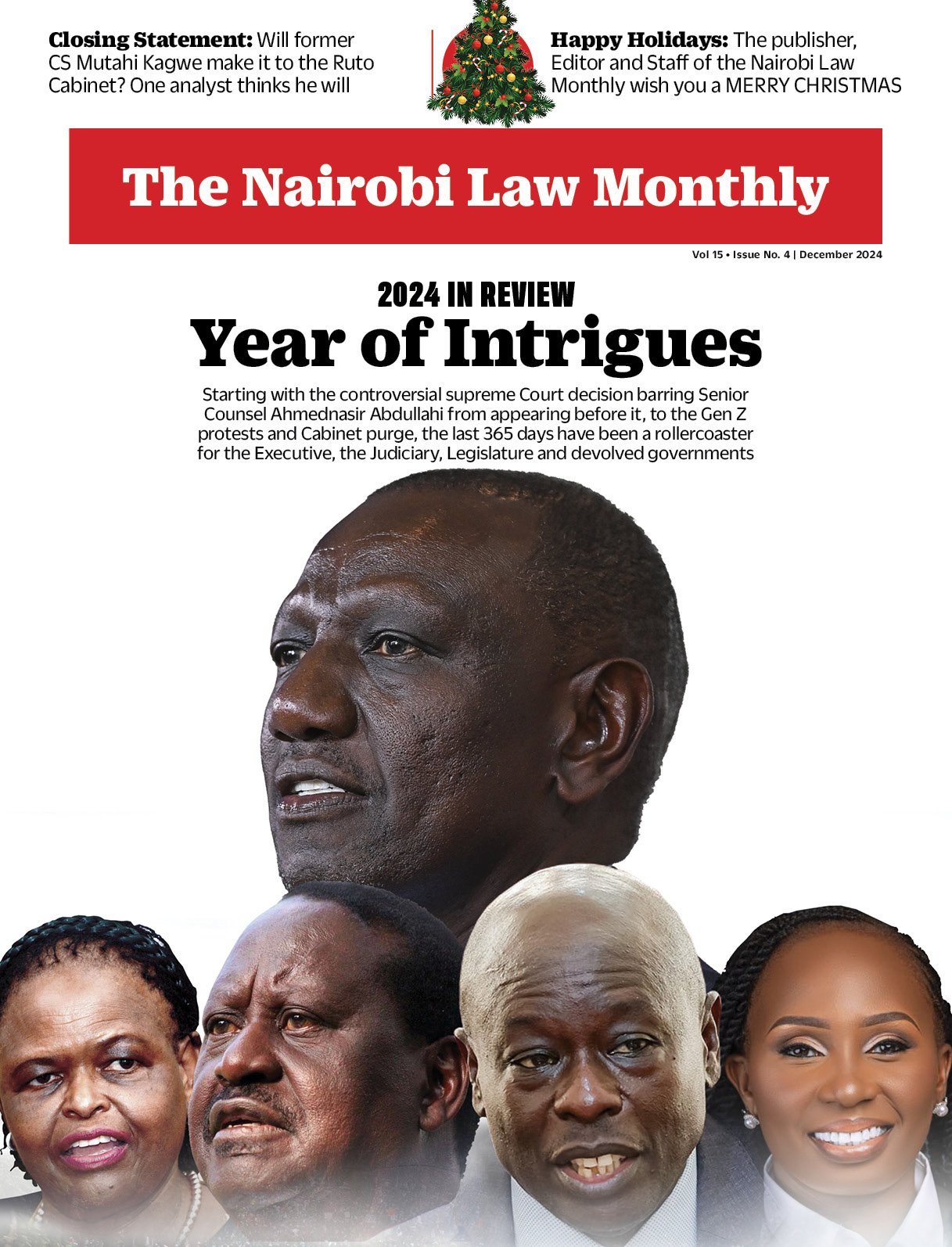By Kenyatta Otieno
The area formerly known as the Northern Frontier District is notorious for cattle rustling. In the past, cattle theft was conducted using spears, arrows and other crude weapons. Then government got the idea to arm home guards after the Shifta War; it proved disastrous. Later, the state of Somalia collapsed, and small arms became available to these pastoralists at very cheap prices. It was at this point that a small problem turned into a sophisticated, dangerous trade.
In the beginning, the raids took a cultural pattern: young initiates conducted raids as a demonstration of their manhood, and to raise dowry for marriage. The victim community would then organise retaliatory attacks to recover their livestock, and the cycle would go on and on. The Turkana, Pokot, Samburu and Borana are caught in this vicious cycle.
In October 2014, scores of Administration Police officers were murdered in Kapedo in a bandit attack on their way to Lomerok Valley – Kapedo lies at the head of the dreaded Suguta Valley to the south of Turkana East Constituency. It also borders East Pokot and Samburu, which makes it a hotspot for banditry. The attackers collected arms from the dead policemen and disappeared into a terrain they are quite used to, but which was treacherous to the strangers in uniform. The country was left in shock; the President went to Baragoi to announce that the attackers would be tracked down to the last man.
In the aftermath of the attack, Nachola Member of County Assembly Lawrence Sebastian Lolunjei, as well as chiefs and sub-chiefs Christopher Lokarach, Loomwa Looyen, Amojong Lothuro, Jeremiah Ekurao, Ewoi Losike and Ekai Loyee, were arrested and charged with the murders in a Nakuru court but later released for lack of evidence. The arrest of a political leader was only understood much later, but the junior provincial administration leaders were targeted for negligence of duty by not passing on intelligence about the bandits.
About 10 years ago, I worked in Maralal town in Samburu County for a few months. My first project was about 30 kilometres west of Maralal. During a reconnaissance, trip we were warned by locals to not venture out as they expected a retaliatory attack from the Pokot. As team leader, I went back to Maralal and asked for police escort.
While I waited, I got talking with the local chief and asked him if there wasn’t a way, any way at all, cattle rustling could be contained. He responded that a political leader from the neighbouring county had organised the raid. “Our hands are tied; we cannot recover out cattle, and we cannot convince the Pokot’s that we don’t know where their cattle are.”
It is first and foremost about politics – tribal and national. One can never be elected into political office in pastoralist communities unless one leads or participates in a cattle raid. Leaders are warriors in this part of the world.
An aspiring leader may organise a raid just and get elected but once in office, will then realise just how expensive it is to retain a political seat.
As a solution, they have to continue to organise raids to buffer their political war chests. When police arrested the MCA after the Kapedo attach, they were riding on this logic even though they did not have evidence.
One day, as we travelled to Suguta Marmar through the Angata Ronagi area, we happened on a man who frantically waved us down. It was risky to stop but we did. It turned out he was ill and wanted a lift to a health centre some way ahead. “It is a bad omen for a virile Samburu man to die of Malaria in the manyatta,” he explained. As we proceeded, we realised there was no one around as local residents had fled to Suguta.
Our travelling visitor explained to us that a Samburu man on the verge of death gets carried to the bush to die alone. It is an ‘honourable death’, he explained, that assures the supply of men willing to kill or die in the unending cattle raids. Young men are happy to keep this tradition alive just to maintain their honour in the community. Politicians, he explained, provided a ready market for the raided cattle in Nairobi and other major towns. It is thriving business.
Cattle rustling is the convergence of politics and honour. It is a practice that doesn’t look like it will go away any time soon, but which must end.
For starters, a new path to ‘honour’ must be identified. The most plausible alternative is education, which must be elevated as a means to social prestige and respect. The other method is to find a way of reducing the sizes of herds while raising the quality of cattle. Cross-breeds that can withstand the arid climate while being bulky enough to make the treks after raids impossible are desirable.
It is also important to debunk cultural practices that do not have a place in the modern world. The young men raid and steal cattle to impress their brides. If young girls can begin to get acculturated and socialised differently, their grooms will not have the motivation to conduct raids. Again, this boils down to education which, in these areas, has been left to NGOs and church-based organisations. It is time this trend changed.
There should be a way of building model schools in these areas, according them enough security, and posting students from all over the country there, even if they have to be airlifted. Locals need a different kind of exposure.
About three quarters of Kenya’s land is suitable for cattle rearing yet the area has been neglected for long. It is sad that more than fifty years after independence, cattle rustling is still commonplace.
If these things can be done, we will get to a point where these communities won’t have need for warrior politicians. But as long as these issues are not addressed, these politicians will have their people at the palms of their hands, and rustling will continue. (



